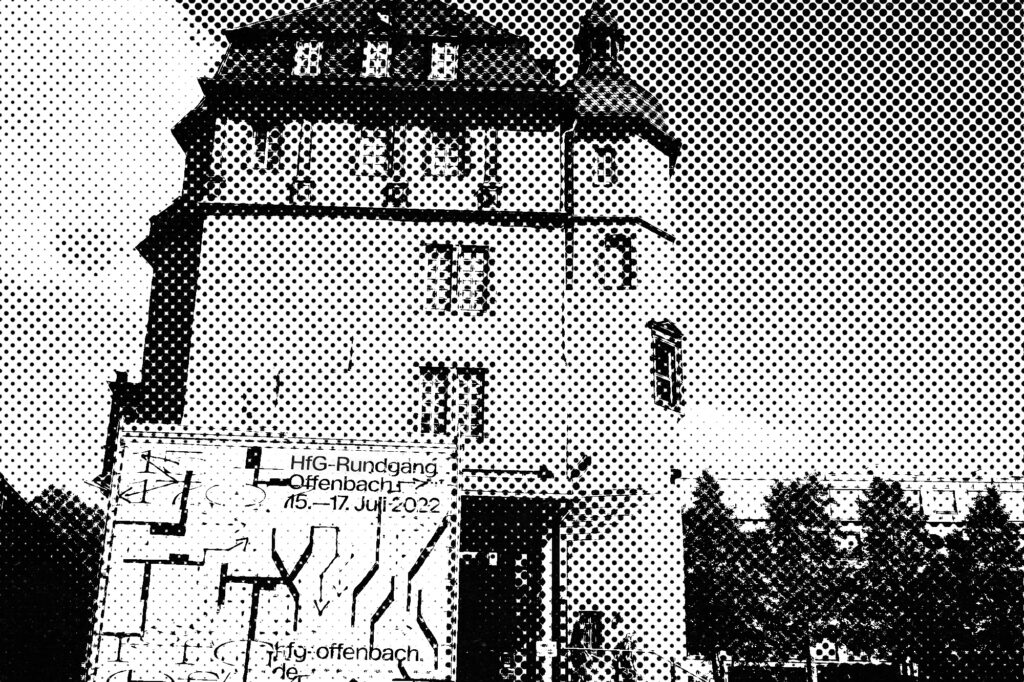
Identifying humanitarian design opportunities – University of Offenbach
- Project
Table of Contents
Context
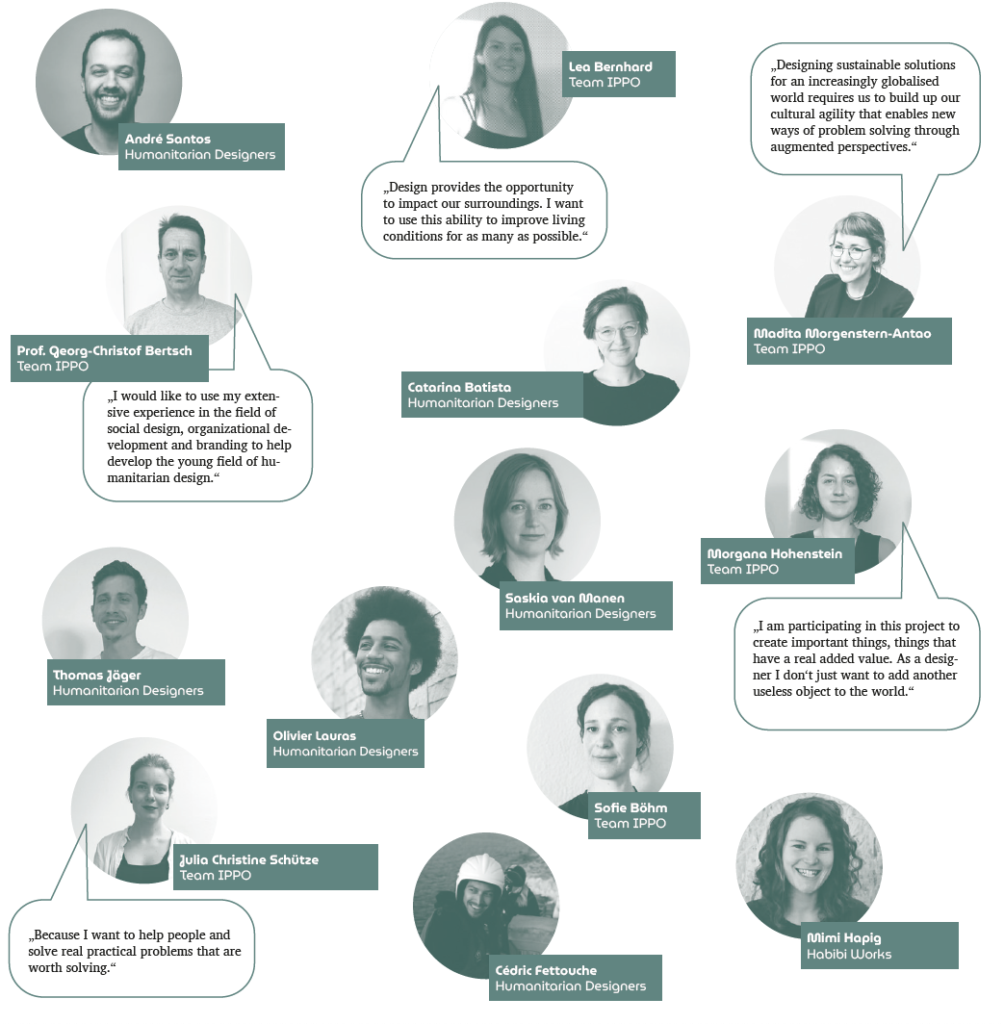
After a year of learning, we made the decision to launch a course on humanitarian design. Thanks to our network, we were able to quickly establish a collaboration with the University of Offenbach in Germany and the grassroots NGO Habibi Works in Greece.
We put out a call within our community to identify individuals interested in creating a curriculum and teaching the students.
Special thanks to our dedicated team of volunteers: Catarina Batista, Olivier Lauras, André Santos, Saskia van Manen, Cédric Fettouche, and Thomas Jäger.
Humanitarian challenge
The initial objective for Humanitarian Designers was to collaborate with Habibi Works on a humanitarian challenge that they are observing inside the Katsikas camp in Ioannina, Greece.
This challenge is the following: residents from the Katsikas refugee camp are struggling to wash their clothes. An interview with Mimi Hapig, from Habibi Works, mapped a diversity of related challenges: access to the machines reserved to camp staff, machines maintenance, reliability of camp staff, difficulty of drying, smell and humidity, price of soap, hygiene, cultural boundaries to handing out underwear, skin problems and other health issues, etc.
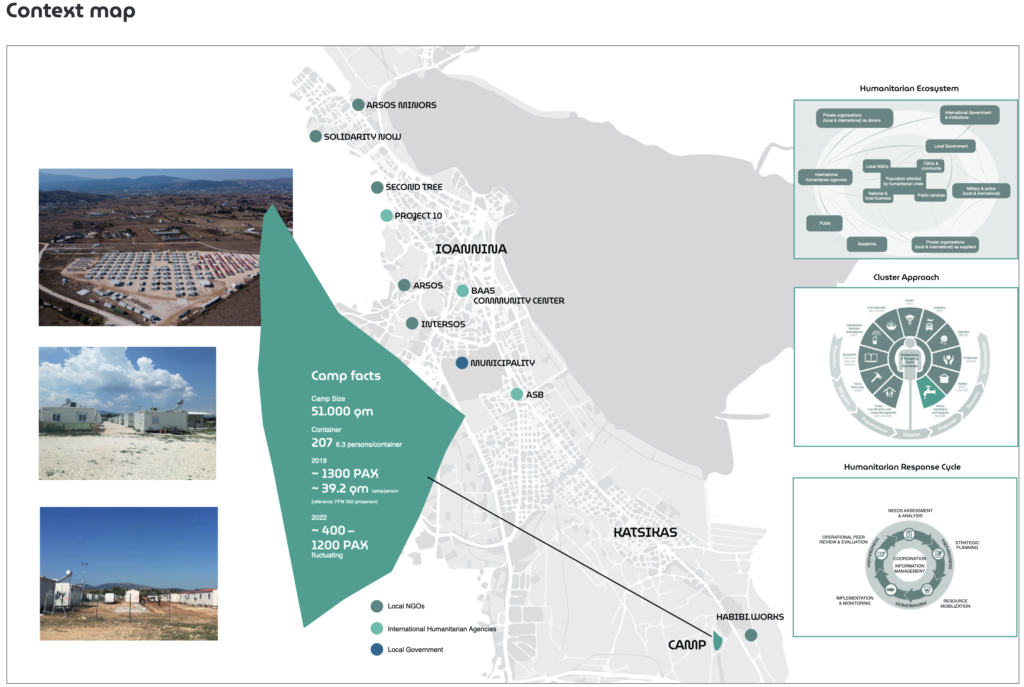
Course
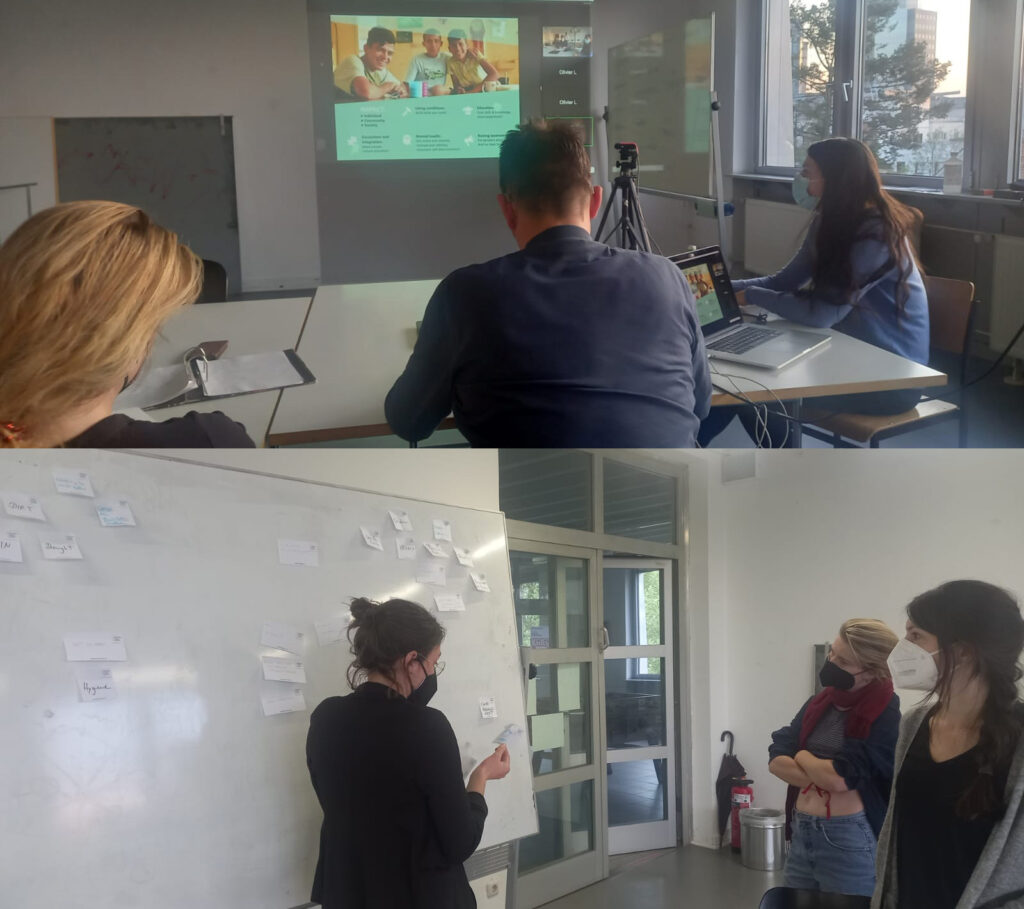
In the context of the pandemic, the course faced new complexities. While we typically advocate for the approach of “working with the people”, we had to promptly adjust our approach.
Due to the limited timeframe of the course, we concluded that we could not deliver a solution such as a prototype of a “context-based washing machine”. As a result, we focused on design research. We conducted interviews with individuals, including Fanny Oppler from the Lava Project; we carried out mapping and brainstorming sessions to compile a list of opportunities.
In our view, a list of opportunities allow the residents of the camp and the NGO to decide what is the best approach to their local context, rather than delivering a so-called “solution” that may not align with the local context. Some of the opportunities may appear too simplistic, while others may seem too complex, but it is not our role, as outsiders, to determine what might be the best fit.
Rundgang Exhibition 2022
At the end of the year, students were able to present their research during the “Rundgang Festival”. It’s like an Open Day for students of every department of the University to present their work.
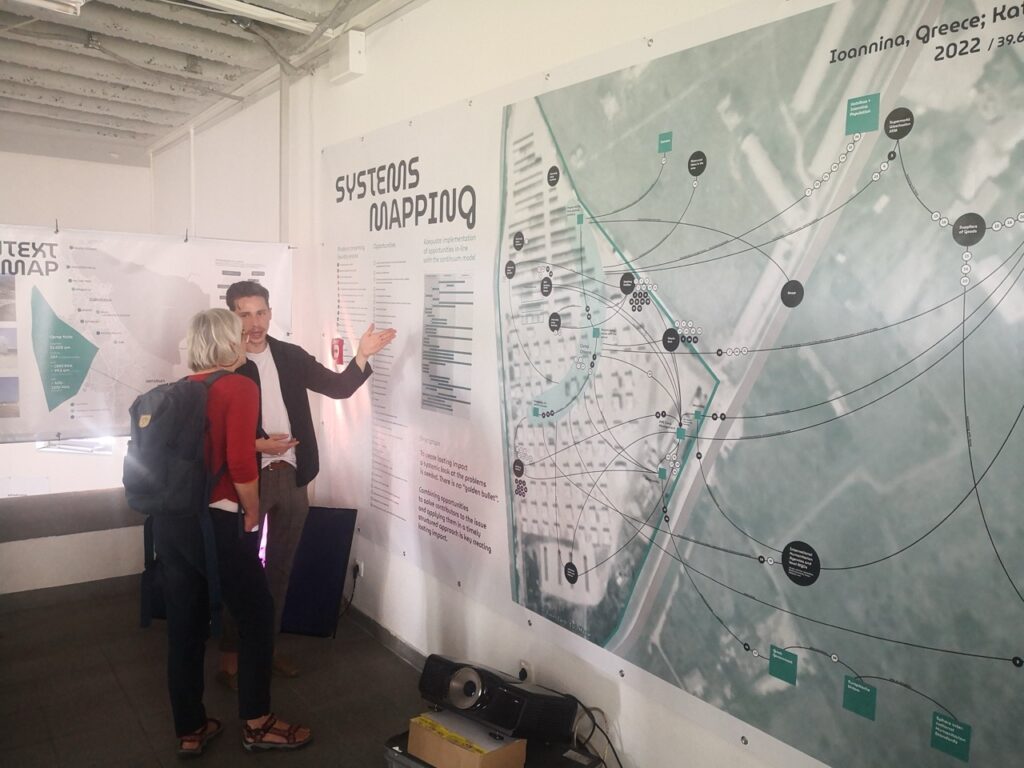
Full report
In this report, you will find the entire process that we followed to achieve this result, including thoughts and learnings.
